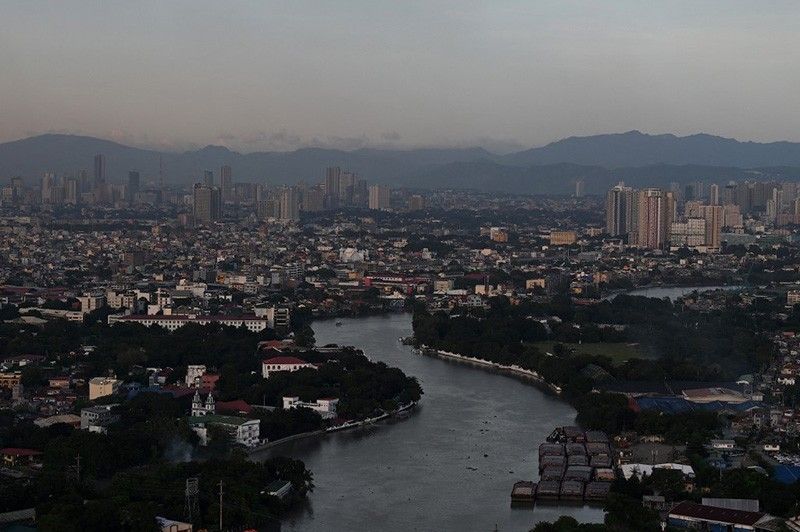Public-private partnerships as a national policy for development

During trying times, people will need all the help they can get. In a world filled with complex and intertwined political, economic and social challenges, it is only through a concerted effort by various stakeholders can these obstacles be addressed.
In the case of the Philippines, the economy has shown encouraging improvements since its dismal performance at the height of the COVID-19 pandemic in 2020. However, Filipinos on the ground continue to experience hardships, ranging from joblessness, poverty, inequality, and the high prices of goods and services. Worse, recovery is likely to be uneven, thereby widening further the inequality gap.
A recent report of the World Bank in November 2022 revealed that despite the significant progress that the Philippines has made to reduce poverty, income inequality remains high: the top 1% of earners account for 17% of the national income, while only 14% represent the bottom 50% of earners. Indeed, the pandemic reversed the gains achieved over the decades in reducing poverty and inequality in the country.
The Filipino people’s concerns remain highly economic in nature. In a survey conducted by Pulse Asia Research Inc. in September 2022, Filipinos identified controlling inflation as their top urgent national concern (66%), followed by increasing the pay of workers (44%), creating more jobs (35%), and reducing poverty (34%).
All this will be daunting for any government to handle by itself. At the very least, a government needs the cooperation and support of its citizens. The private sector has repeatedly demonstrated its capacity as an indispensable partner of the government in achieving growth and development.
A Pulse Asia survey commissioned by Stratbase in September 2022 found that majority of Filipinos at 86% agree that the private sector plays a crucial role in accelerating the country’s economic growth. In the same manner, 89% of Filipinos believe that the government and the private sector should engage in partnership to sustain economic recovery.
Specifically, the private sector is seen to contribute to boosting the Philippine economy by creating jobs (69%), helping uplift the lives of Filipinos out of poverty (65%), and expanding livelihood opportunities (49%). Other areas where Filipinos believe the private sector can help in are improving healthcare systems (37%), improving the quality of and access to digital services (27%), managing natural resources and taking care of the environment (19%), developing public infrastructure (16%), and improving the quality of education (12%). In essence, the private sector is capable of contributing to the growth of any sector of the economy.
Recently, the think tank Stratbase ADR Institute held its two-day Pilipinas Conference to draw attention on the role of the private sector in nation-building. The last session of the conference, carrying the theme, “Business Value Creation: Paving the Path for Inclusive Growth”, was a three-part discussion that gathered the Philippine government’s economic managers, business groups, and industry thought leaders to share their insights on how meaningful partnerships between the new government and the private sector can promote inclusive growth and sustainable development in the years to come.
In his keynote address, Department of Finance (DOF) Secretary Benjamin Diokno commended the country’s business community for its strength and resilience amid the COVID-19 pandemic as it quickly adapted to market developments and, ultimately, helped keep the economy afloat.
“We recognize that effective public-private coordination holds the key to a host of desirable economic activities. We will harness public-private partnership mechanisms to execute impactful projects consistent with our development goals,” Diokno said.
Among the panelists in the ensuing discussions was Rizalina Mantaring, treasurer of the Makati Business Club (MBC) and former CEO and country head of Sun Life Philippines, who stressed the need of businesses for stability and predictability of the policy environment. “If you're investing billions into the country, you have to be certain that the rules won't suddenly change. So, sanctity of contracts I think will be important, transparency is important, and rule of law is important to encourage people to invest in the country,” she noted.
Furthermore, Cosette Canilao, president and CEO of Aboitiz InfraCapital, underscored the point that anything can be done through public-private partnerships (PPPs) since the framework is already in place.
Department of Trade and Industry (DTI) Secretary Alfredo Pascual emphasized that the private sector is undeniably the major “engine of economic growth.” He stressed further, “The private sector is also a crucial partner in achieving the country’s green, sustainable, and inclusive development. Beyond corporate social responsibility, corporations should also plan and implement sustainable and inclusive development programs in partnership with the government at the local and national levels.”
There is no doubt that a sustained partnership between the government and the private sector is a game-changer in the equation for national recovery and development. But what the country needs is not just PPP per se, but an integrated partnership with the private sector anchored on national policy. This partnership will serve as the continuing link that the government can utilize to ensure that the economy bounce back sustainably amid global uncertainties.
The main challenge for the government is to create an enabling environment for businesses to thrive. This should come in the form of market-friendly policies, ease of doing business, and good governance, which all?contribute to the development of public trust.
The country needs an integrated plan that will put together the various initiatives and inherent strengths of private sector enterprises alongside those of the government under one national plan. By doing so, it will be easier for the government to rationalize its development plans and quantify the social and economic benefits for targeted communities. In the end, the public can have a better sense, too, of the national goal that no one will be left behind.
Venice Isabelle Rañosa is a research manager at think tank Stratbase ADR Institute.
- Latest





























